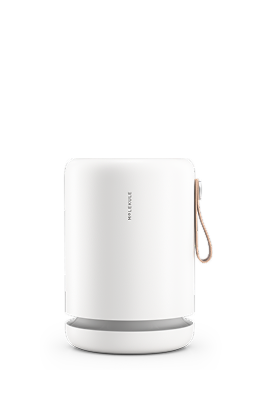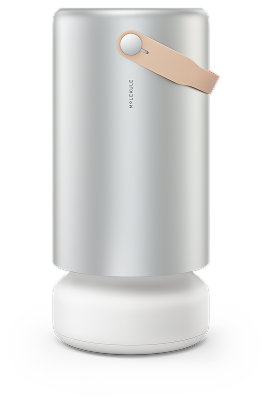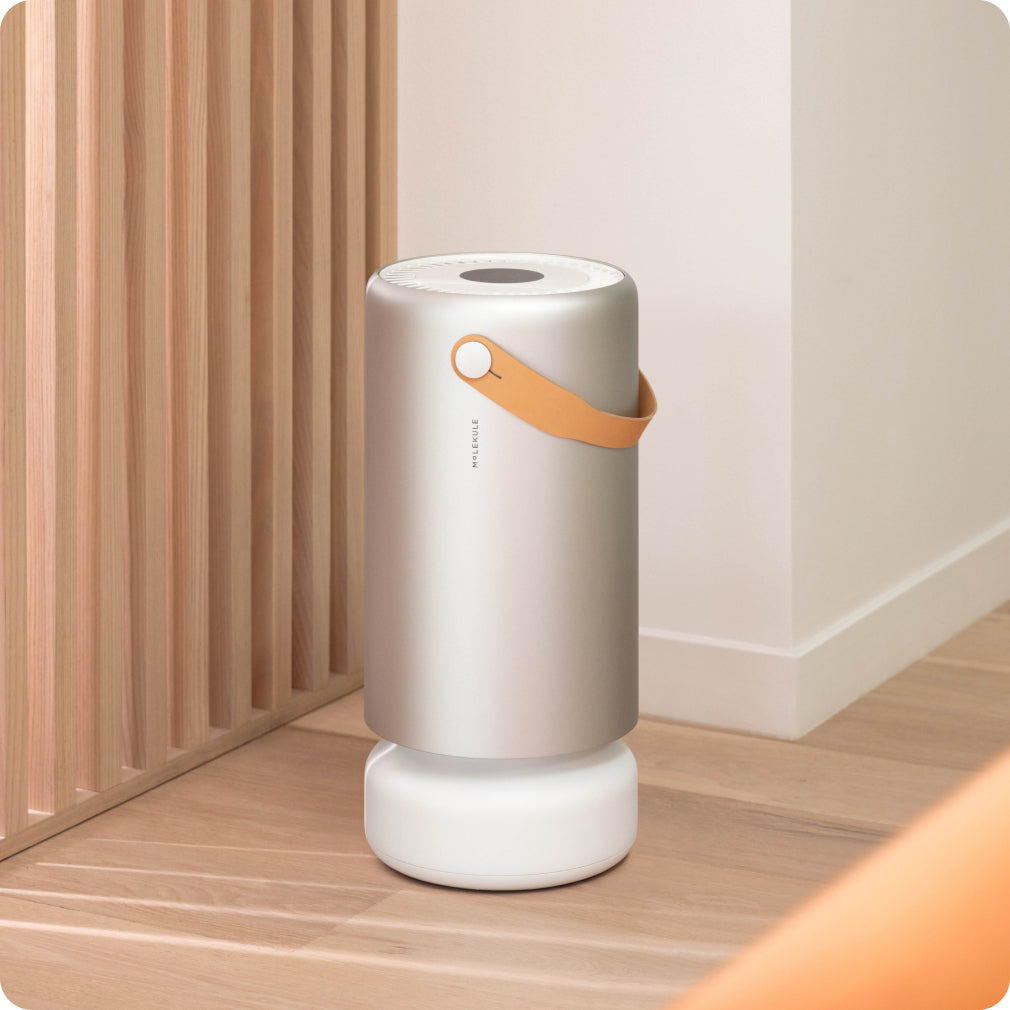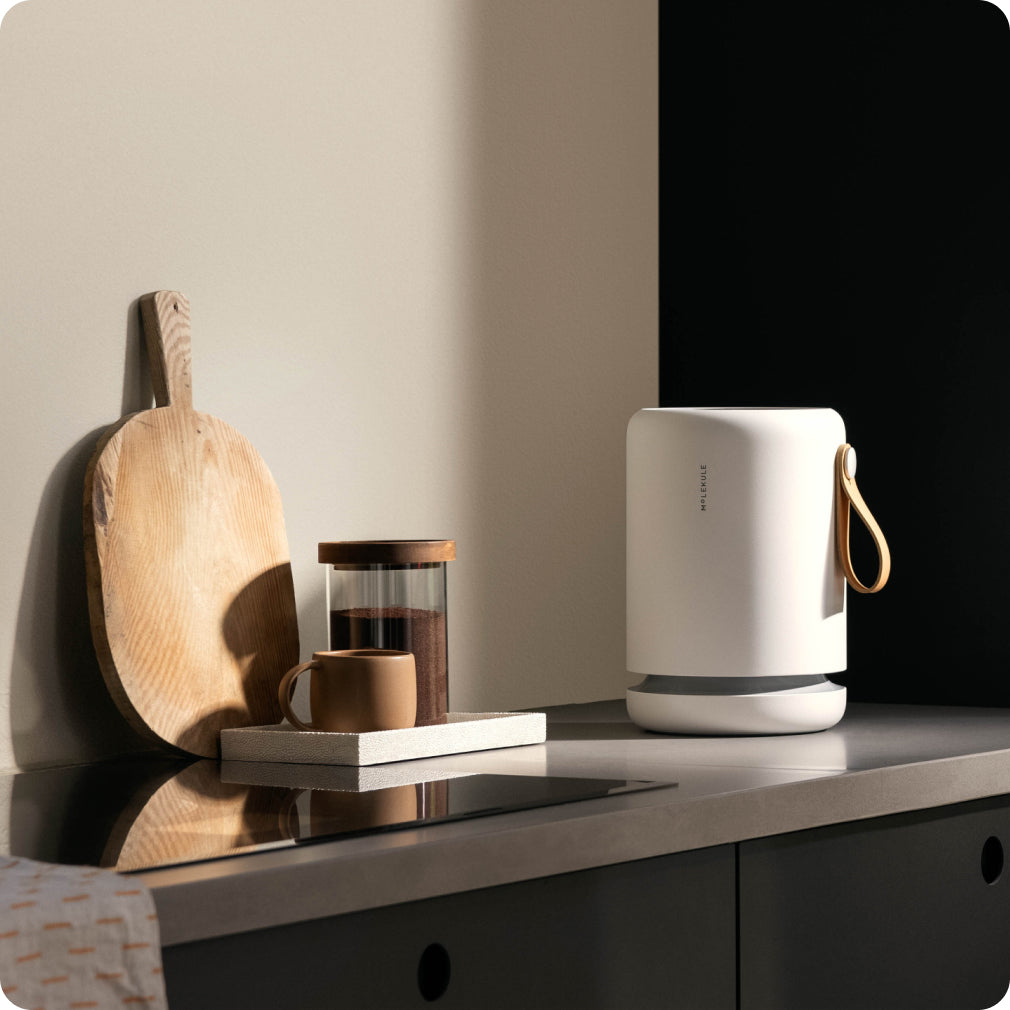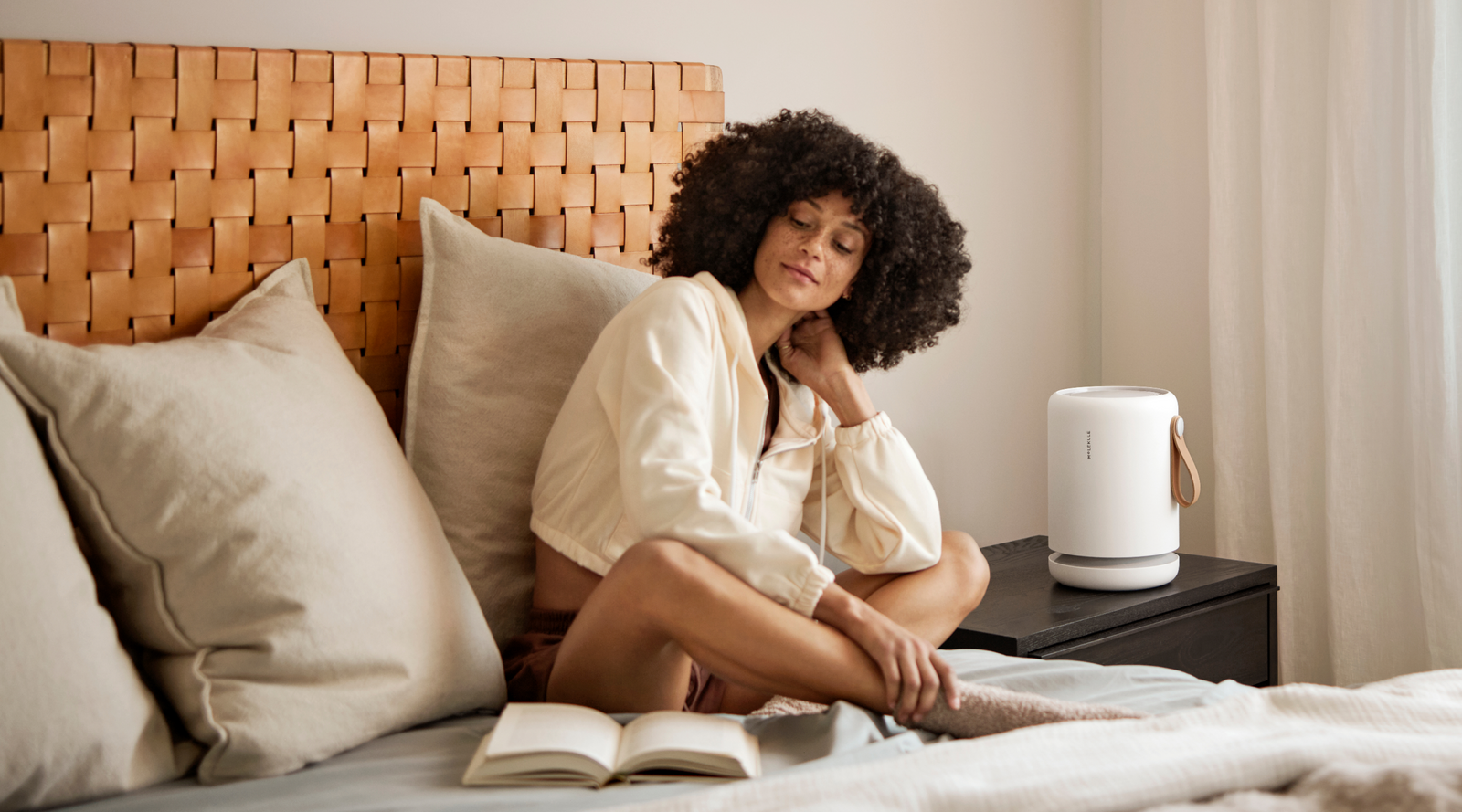Can stress trigger allergies? The answer isn’t a simple yes or no. While stress doesn’t directly cause allergies, it can significantly worsen existing symptoms and make allergic reactions more intense. When you’re feeling stressed, your body releases histamine — a chemical involved in both stress and allergic responses — potentially intensifying sneezing, congestion, and other common allergy symptoms. This creates a frustrating cycle: stress makes allergies worse, and worsening allergy symptoms add more stress.
To help break this cycle, managing environmental triggers is essential — and air purifiers can play a critical role in reducing allergen exposure and lightening the immune system’s load. Understanding the connection between emotional stress, immune response, and indoor air quality is key to finding lasting relief.
Key Takeaways
-
When the body experiences stress, it releases histamine, which can mimic or exacerbate allergy symptoms.
-
Chronic stress compromises immune system function, making you more susceptible to allergen reactions.
-
The stress-allergy cycle affects sleep quality and overall well-being.
-
Effective stress management combined with environmental controls can reduce allergy flare-ups.
-
Air purification technology can help break the cycle by reducing allergen exposure.
How Can Stress Trigger Allergies? Understanding the Biological Connection
The relationship between stress and allergies operates through several interconnected biological mechanisms. The underlying pathophysiology involves immunoregulatory dysfunctions similar to those noted in highly stressed populations. When your body perceives stress, it triggers a cascade of responses that can directly impact your allergic reactions.
When the brain senses danger, it alerts the adrenal glands to release stress hormones. That causes your heart to pound, blood pressure to rise, and blood vessels to constrict to send more blood to your brain and muscles. During this stress response, your body also releases additional histamine — the same chemical responsible for allergy symptoms like sneezing, runny nose, and watery eyes.
While stress doesn't actually cause allergies, it can make an allergic reaction worse by increasing the histamine in your bloodstream. This creates a problematic cycle where stress amplifies the very symptoms that can cause more stress.
The Role of Cortisol in Allergy Responses
Chronic stress produces long-term changes in your body's hormone levels. Chronic stress over weeks or months causes extra cortisol production, the body's main stress-related hormone. If cortisol remains elevated over time, it begins to compromise the immune system, making a person more susceptible to illness and disease.
This compromised immune function means your body may overreact to allergens it would normally handle more effectively. When cortisol becomes elevated and remains so for awhile, it affects the cells that comprise your immune system. The immune system can't keep infections or diseases at bay as it would do normally.
Research Evidence: Can Stress Trigger Allergies in Real Life?
Multiple scientific studies have investigated whether stress can trigger allergies or worsen existing allergic conditions. A study published in the Annals of Allergy, Asthma & Immunotherapy in 2014 was the first to establish a link between stress and allergy symptoms.
The research involved 179 university employees who completed questionnaires about perceived stress and kept daily diary entries about their allergy flares. Over both study periods, 39 participants experienced allergy symptoms. These participants had higher perceived stress scores than the participants who did not report allergy symptoms.
These results show that people with persistent emotional stress have more frequent allergy flares, and that those with more flares experience more negative mood. This groundbreaking research provided the first scientific evidence for what many allergy sufferers had long suspected — that stress makes their symptoms worse.

Sleep and Stress: The Triple Connection
The relationship between stress, allergies, and sleep creates a particularly challenging cycle. Histamine, an inflammatory mediator released during allergic reactions, might contribute to disturbed sleep because it is involved in the regulation of the sleep-wake cycle and arousal but also can induce symptoms of rhinitis, directly leading to sleep disruption.
A 2022 analysis found that participants with insufficient sleep (≤ 6 h/night) had 1.27 × higher odds of developing allergic sensitisation compared to participants with adequate sleep (7–8 h/night). This means that poor sleep — often caused by stress — can actually make you more susceptible to allergic reactions.
When you're dealing with air purifiers for sleep issues caused by allergens, the stress of poor sleep quality compounds the problem, creating a cycle that's difficult to break without targeted intervention.
Physical Symptoms: How Stress-Triggered Allergies Manifest
When stress triggers or worsens allergies, the symptoms can be both immediate and long-lasting. Stress amplifies our emotional reaction to any symptoms we are having.
Common stress-induced allergy symptoms include:
-
Increased nasal congestion
-
More frequent sneezing episodes
-
Heightened throat irritation
-
Worsened asthma symptoms
-
More intense itchy, watery eyes
-
Increased skin reactions like eczema flare-ups
-
Greater sensitivity to environmental triggers
-
More severe reactions to typical allergens
Patients with acute rhinitis (AR) are more prone to upper respiratory infections during periods of high psychological stress. This increased vulnerability means that stress doesn't just worsen existing allergy symptoms — it can make you more susceptible to additional respiratory issues — for example, exacerbating your asthma symptoms when you’re trying to sleep.
For those dealing with persistent symptoms, having clean indoor air becomes crucial. Advanced air purification systems can help reduce the allergen load in your environment, potentially lessening the stress-allergy cycle.
The Stress-Allergy Cycle: Why It's Hard to Break
Understanding the stress-allergy cycle helps explain why some people experience seemingly endless allergy problems. The cycle typically works like this:
-
Initial Trigger: Exposure to allergens causes allergic reactions.
-
Stress Response: Physical discomfort and breathing difficulties create stress.
-
Amplified Symptoms: Stress hormones worsen allergy symptoms.
-
Increased Stress: Worsened symptoms create more stress and anxiety.
-
Compromised Sleep: Stress and symptoms disrupt sleep quality.
-
Weakened Immunity: Poor sleep and chronic stress compromise immune function.
-
Greater Sensitivity: Weakened immunity leads to stronger reactions to allergens.
Once the allergy season is full-blown, the combination of miserable allergy symptoms, nights of fitful sleep, and fatigue, definitely leave you in need of stress relief. Breaking this cycle requires addressing both the environmental allergen exposure and the stress response simultaneously.
Many people find that creating an allergen-free sanctuary in their bedroom using quiet air purifiers helps improve sleep quality, which in turn reduces stress and makes allergy symptoms more manageable.
Stress Management Strategies for Allergy Relief
Effective stress management can significantly impact allergy symptoms. When you reduce stress levels and psychological stressors, you'll feel like your quality of life has improved beyond just simply treating the allergies.
Evidence-Based Stress Reduction Techniques
Research supports several approaches to managing stress for allergy relief:
-
Regular cardiovascular exercise to reduce stress hormones
-
Deep breathing exercises to activate the relaxation response
-
Progressive muscle relaxation to reduce physical tension
-
Yoga and tai chi for mind-body stress relief
-
Mindfulness meditation to manage stress responses
-
Cognitive behavioral therapy for chronic stress
-
Regular sleep hygiene to improve rest quality
-
Social support and counseling when needed
You can reduce stress with exercise — the kind that gets your heart and lungs pumping — and by eliciting the relaxation response, a well-studied physiological change that can help lower your blood pressure, heart rate, breathing rate, oxygen consumption, adrenaline levels, and levels of the stress hormone cortisol.
For comprehensive allergy management, combining stress reduction with environmental controls often produces the best results. This might include using air purifiers for VOCs to remove chemical irritants that can compound stress-related allergy symptoms.

Environmental Control: Reducing Allergen Exposure
While managing stress is crucial, reducing exposure to allergens in your environment creates the foundation for better allergy control. Creating clean air spaces in your home can significantly reduce the allergen load that triggers both physical symptoms and stress responses.
Advanced Air Purification Technology
Modern air purification technology goes beyond traditional filtering to actively destroy allergens at the molecular level. PECO (Photo Electrochemical Oxidation) technology doesn't just trap allergens—it breaks them down into harmless components like carbon dioxide and water.
This destruction of allergens rather than mere filtration means that allergens can't be re-released into your air, providing more consistent relief from environmental triggers. For spaces where you spend the most time, professional grade air purifiers can handle larger areas and higher concentrations of allergens.
Creating Allergy-Safe Zones
Establishing allergen-free zones in your home, particularly in bedrooms, can provide crucial relief during high-stress periods. Key strategies include:
-
Using air purifiers with both HEPA and molecular destruction capabilities
-
Maintaining optimal humidity levels (30-50%) to discourage dust mites and mold
-
Regular cleaning with HEPA-filtered vacuums
-
Allergen-proof bedding and mattress covers
-
Keeping windows closed during high pollen periods
For pet owners dealing with stress-related allergy flare-ups, specialized air purifiers for pet hair can significantly reduce dander exposure while allowing you to maintain the emotional benefits of pet companionship.
Sleep Quality and Allergy Management
The connection between sleep, stress, and allergies makes sleep quality a critical component of allergy management. Individuals with allergies are more than twice as likely to have insomnia than those without allergies.
The Sleep-Allergy Connection
Poor sleep quality affects your body's ability to manage both stress and allergic reactions. Research has shown that people who do not get enough sleep may become more sensitive to certain allergens. This creates another layer in the stress-allergy cycle where sleep deprivation makes you more reactive to environmental triggers.
Quality sleep requires clean air in your sleeping environment. Bedroom air purifiers designed for overnight use operate quietly while continuously removing allergens that could disrupt sleep. These devices often include sleep modes that dim lights and reduce noise — or even emit pink noise or white noise — while maintaining effective air cleaning.
For comprehensive sleep support, consider how indoor air quality affects your overall rest. Learning about the benefits of air purifiers can help you understand how clean air contributes to better sleep and reduced stress.
Building Long-Term Resilience
Managing the stress-allergy connection requires a comprehensive approach that addresses both immediate symptoms and long-term patterns. Building resilience involves creating systems that support both physical and emotional well-being.
Holistic Allergy Management
Effective long-term management combines multiple strategies:
Environmental Controls:
-
Consistent use of air purification technology
-
Regular home cleaning and allergen reduction
-
Seasonal preparation for high-allergen periods
-
Monitoring outdoor air quality and pollen counts
Stress Management Systems:
-
Regular stress-reduction practices
-
Healthy sleep habits and environment optimization
-
Physical exercise and relaxation techniques
-
Social support and stress-sharing strategies
Health Maintenance:
-
Regular healthcare check-ups and allergy monitoring
-
Consistent medication use as prescribed
-
Nutritional support for immune system health
-
Preventive care to avoid allergy complications
Understanding how to make your room smell fresh can be part of creating a stress-reducing environment that also supports better allergy management.
Special Considerations for Different Life Stages
The stress-allergy connection can manifest differently across various life stages and circumstances. Understanding these variations helps in developing targeted management strategies.
Children and Stress-Related Allergies
Children may be particularly vulnerable to stress-related allergy flare-ups because they have fewer coping mechanisms for managing stress. Environmental controls become especially important in children's bedrooms and play areas. Air purifiers for newborns are designed with special safety considerations while providing the clean air that supports healthy development.
Workplace and Environmental Stressors
Work-related stress can significantly impact allergy symptoms, especially in environments with poor air quality or high allergen levels. Air purifiers for basement offices or other challenging indoor environments can help create healthier workspace conditions that reduce both allergen exposure and environmental stress.
Seasonal Stress and Allergy Interactions
Peak allergy seasons often coincide with other stressful life events, creating perfect storms for symptom flare-ups. Having robust environmental controls in place before allergy seasons begin can help prevent the stress-allergy cycle from taking hold.
Consider the comprehensive approach of addressing mold allergies during humid seasons when both mold exposure and stress from uncomfortable conditions can compound allergy problems.
Frequently Asked Questions
Can stress directly cause allergies if I've never had them before?
Stress cannot directly cause new allergies to develop, but it can make you more sensitive to allergens in your environment and may reveal existing sensitivities that weren't previously noticeable. Stress affects immune system functioning, which can change how your body responds to environmental triggers.
How quickly can stress management reduce allergy symptoms?
Some people notice improvements in allergy symptoms within days of implementing stress reduction techniques, while others may take several weeks to see significant changes. The timeline depends on factors like stress levels, allergy severity, and which management strategies are used.
Do certain types of stress affect allergies more than others?
Chronic, ongoing stress tends to have a greater impact on allergy symptoms than acute, short-term stress. Chronic stress is a major contributor to gut microbiome dysfunction, which is a root cause of many inflammatory conditions, including allergies.
Can air purifiers help with stress-related allergy symptoms?
Yes, air purifiers can help break the stress-allergy cycle by reducing environmental allergen exposure. When your body encounters fewer allergens, it produces fewer stress-inducing symptoms, which can help reduce overall stress levels and prevent symptom amplification.
Is there a connection between food allergies and stress?
A global survey has shown that people with food allergies and their caregivers experience a lot of stress and anxiety related to their allergies. While stress doesn't cause food allergies, it can make reactions more severe and increase anxiety around food choices.
How does poor sleep worsen the stress-allergy cycle?
Poor sleep weakens immune system function and increases stress hormone production, both of which can make allergic reactions more severe. Additionally, sleep deprivation makes people more sensitive to allergens and less able to cope with allergy symptoms emotionally.
